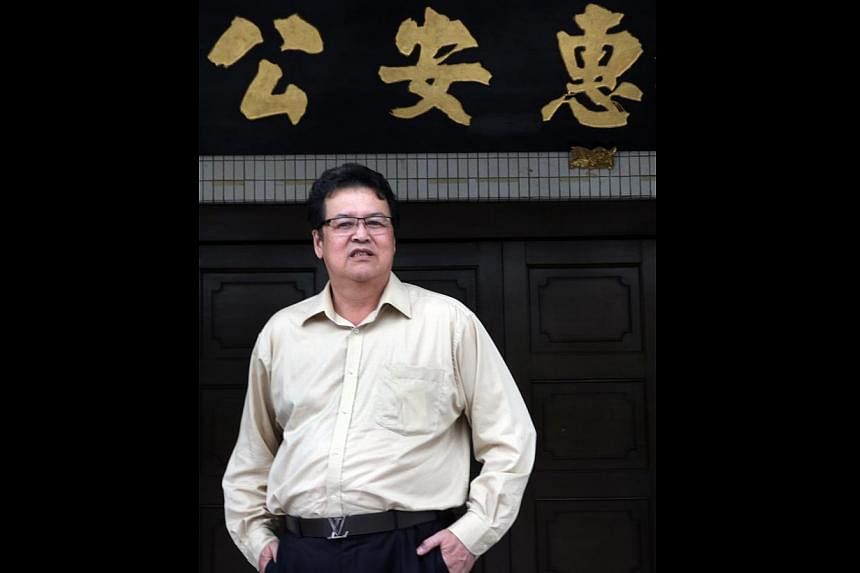When Mr Sun Lai Fong left his native Hui'an county in Fujian province to work here in 1981, he headed straight to the Singapore Hui Ann Association in Geylang.
Then 26 and alone, he planned to seek the help and support of his fellow clansmen in Singapore. But he was turned away because he was not a citizen here.
Disappointed but not deterred, he went back to his $13-a-day job as a construction worker to support his wife and three young daughters back home. But he vowed he would join the association some day.
More than three decades later, the 59-year-old boss of a construction firm - a Singapore citizen now - is president of the 90-year-old association.
"I bear no grudge against the association even though I was rejected by it before, but thought its rules on membership should be more flexible," said Mr Sun, who obtained his citizenship in 1985 when he brought his wife and children here too.
He was persuaded by predecessor Joseph Chia to lead the association and was voted in as president by its 800 members in January.
Mr Sun is the first new Chinese immigrant to lead an old Chinese clan association here.
Mr Chia, 67, a businessman, said he picked Mr Sun because he was born in Hui'an and would have stronger feelings for the clan.
"Most other members, including myself and even the older ones in their 80s, are second-generation Singaporeans," he said.
Last December, Mr Sun, chief of Sunhuan Construction, was presented with the Established Entrepreneur of the Year Award by the Association of Small and Medium Enterprises and Rotary Club of Singapore.
His firm boasts an annual turnover of $200 million and employs more than 600 foreign workers.
While he has only three years of primary education, his schooling in construction started early. In his native Hui'an, which is known for stone carvings, he became a construction apprentice at the age of 11 during the 1966-1976 Cultural Revolution.
His expertise in construction and renovation was noticed by the Hui Ann association leaders in 2009 when he assisted in the renovation of its premises in Lorong 29 Geylang - such as by installing a wall mural of stone carvings depicting Hui'an women.
Since taking over its leadership, Mr Sun has helped Hui Ann obtain the ISO 9000 certification for its management system and practices, making it the only Chinese clan association to do so.
He will lead the association's 90th anniversary celebrations this year. On Friday, a three-day exhibition of 63 works in oil and watercolour by its art club members will be held at the Singapore Chinese Chamber of Commerce and Industry Building.
Art club leader Yap Hwee Suan, 55, a graphic designer, said Mr Sun sponsored accommodation and transport expenses for nine club members who spent six days painting in Hui'an in June while practising for the event.
A gala dinner for 1,000 people, including more than 200 Hui'an clansmen from overseas, will be held at Resorts World Sentosa on Nov 30.
The association recently changed its Constitution to allow Hui'an-born non-citizens working and living here to be associate members.
"I am glad the association has finally changed its rules on membership," said Mr Sun, whose immediate task is to increase the number of members.
"More than half of our members today are over 50, and if we cannot get the younger ones to join us, we will not have many members in 20 years' time."
Mr Sun, whose two younger sons were born here, believes the best way for new Chinese immigrants to integrate into the mainstream Chinese community here is to join an existing clan.
He added: "Both old and new immigrants must accommodate and cooperate with one another to ensure that the association can continue and succeed."

